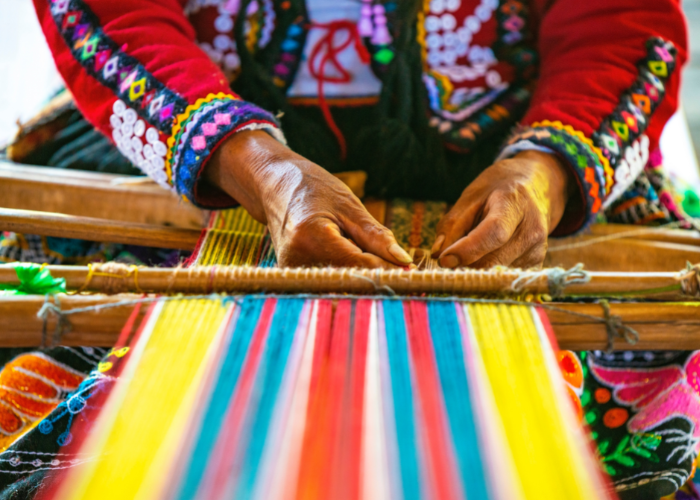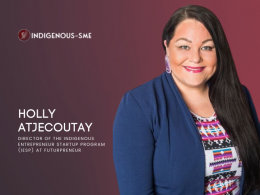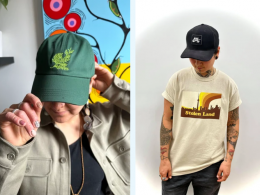Maggie Thompson began her college by specializing in architecture, but the unrealistic demands of the coursework soon made her drift away from it. Then she took a machine knitting class in the foundation year and discovered textiles and machine knitting.
Having already learned how to knit, crochet, sew, and do all sorts of fiber-related things as a kid from the City of Lakes Waldorf School, she was used to doing textile-related activities. But with the formal taking up of textile learning in college, a hobby in crafting was turning into a profession.
The Bear Brand
In 2014, Maggie had finished her graduation a year earlier and was looking for a job that was flexible to care for her father. She wanted to make work more accessible and didn’t want to give her designs to someone else or produce for a larger company. She also wanted her work to be more than just on a gallery wall; she wanted it to be in the world.
Her love for building things, understanding the structure of different knitting patterns, and the therapeutic and meditative feel it gave her led Maggie to create a brand close to her heart.
The theme of the bear is a constant in Maggie’s life. She belonged to the bear clan and was called “Cubby” as a kid when she spent a lot of time in the North. Hence, when she decided to brand her business, she chose the word “bear” in the Ojibwe language. Thus, the brand Makwa Studio was born.
Makwa Studio is a creative space focusing on textiles, art, and fashion. Much of the work is influenced by Thompson’s Native heritage, and she brings subtle cultural references to her patterns and design work. Makwa strives to use luxury yarns, specializing in wool sourced from a US mill. Each item is designed and hand-loomed in Northeast Minneapolis at the Northrup King Building.
Makwa is passionate about creating high-quality goods and is particular about how their practice contributes to the discussion of contemporary Native art and fashion.
Embracing The History
Maggie Thompson (Fond du Lac Ojibwe) was born and raised in Minneapolis. She graduated from the Rhode Island School of Design in 2013, receiving her Bachelor of Fine Arts in Textiles. Maggie is a textile artist and designer who derives her inspiration from the history of her Ojibwe heritage, exploring family history, themes, and subject matter of the broader Native American experience.
Thompson’s work draws attention to its materiality and challenges the viewer’s traditional understanding of textiles. She explores materials in her work by incorporating multimedia elements such as photographs, beer caps, and 3D-printed objects.
In 2014, Thompson had her first solo exhibition, “Where I Fit,” at All My Relations Gallery. Since then, she has exhibited at institutions like the Minneapolis Institute of Art and the Plains Art Museum.
In 2015, she received funding from the Native Arts and Cultures Foundation Regional Fellowship and the Minnesota State Arts Board Cultural Community Partnership Grant to produce a body of work for her exhibit “On Borrowed Time” at the Minnesota Textile Center.
The Minneapolis Institute of Art and the Minnesota Historical Society have taken her work of art into their permanent collection.
She is an emerging curator of contemporary Native art and has worked on curating special exhibits for Two Rivers Gallery, the McKnight Foundation, and the Minnesota Museum of American Art.
Maggie Thompson has collaborated with Faribault Woolen Mills on an upcycling program by weaving their blanket scraps into rugs. The project reimagines and redesigns waste by putting a new spin on it.
She is also looking forward to partnering with artists to create patterns for products and mentoring them to create on an industrial knitting machine.
The Minneapolis-based Makwa Studio is an Indigenous brand specializing in knitwear and fine art textiles. For more information, visit their website at http://makwastudio.com/.
Indigenous businesses are working towards uplifting their art, culture, and traditions. To read more about these topics, subscribe to Indigenous SME Business Magazine and for the latest updates, check our Twitter page, @IndigenousSme.







